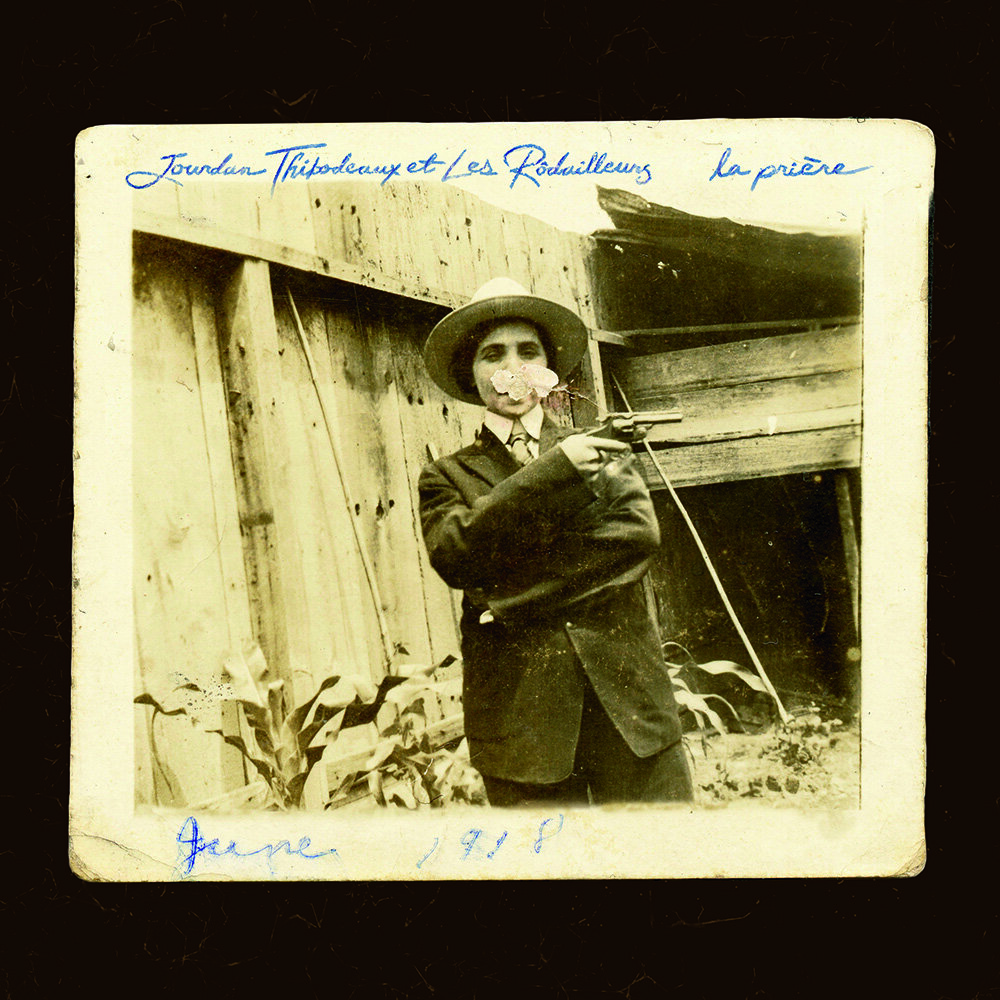Jourdan Thibodeaux et les Rôdailleurs: La Prière - Electronic Press Kit
Listen/Download Tracks
“Tu vis ta culture ou tu tues ta culture…”
After taking the Louisiana music scene by storm in 2018, Jourdan Thibodeaux et Les Rôdailleurs have developed a reputation for pairing ancient traditions with incomparable energy. Preserving a culture while pioneering its advancement, Grammy Award winning and nominated musicians Joel Savoy, Cedric Watson, and Alan Lafleur, join Adam Cormier in bringing Jourdan’s stories to life.
Known for his authenticity, and being one of the few young people speaking Cajun French today, Jourdan Thibodeaux has been called “the future of cajun music” by Acadiana Profile Magazine. “It’s all very honest and real,” says Offbeat Magazine in regards to the all original tracks that he writes about his life in Cypress Island, Louisiana.
The highly anticipated sophomore album continues to deliver la vérité.
From headlining Festivals Acadiens et Creoles, to Jazz Fest in New Orleans, to SXSW, to the Congrès Mondial in Canada, Les Rôdailleurs have surely earned their name.
OFFICIAL RELEASE DATE: MARCH 3rd, 2023
Track List
Né dans un ouragan
Blues de bon rien
Pu personne
C2MPK42D
One step de Rôdailleur
Équand j’étais près mourir
Cypress island stomp
Jeté le verre
Batailleur
La prière
Credits
RÔDAILLEURS
Jourdan Thibodeaux: fiddle/vocal
Joel Savoy: Guitar
Cedric Watson: accordion/fiddle/vocals
Alan Lafleur: bass
Adam Cormier: drums
Production
All songs written by Jourdan Thibodeaux, Cypress Island Publishing
Produced, recorded, and mixed by Joel Savoy at Valcour Records 2022-2023
Lyrics and translations available at ValcourRecords.com
Mastered by Aaron Thomas at ATMAS
Album artwork by Burton Durand
A MESSAGE FROM JOURDaN
I’ve always been captivated by the old sounds of our area; The honesty in each note played, the emotion in each word. No one wrote or formulated a song trying to make a hit. Our cultural music was as raw as the cane they cut and as rhythmic as the rice pump over their shoulders. Shouting out your diary to the masses is nothing like reciting lines from a tired play, and people can feel that.
It’s hard to say where this music or culture will be in another 100 years, but I’d like to believe that we’ve done our part in continuing that tradition. These songs are my truths, my experiences, my prayers. This is the language I heard throughout my childhood; the language I raise my children in. These are the rhythms of workdays on our farm, the howls of heartbreak, and the melodies of my memories.
I am eternally grateful for this incredible group of guys who’ve given me the opportunity to share this with you, for your support, and for all of our families that came before us and made us who we are.
Always one of my favorites, the cover photo is of my great-grandmother. The woman who instilled a love for singing in the succeeding matriarchs and their progeny. An interview with my grandfather, a man amongst men who I admired very much and whose farm I worked in my formative years, can be heard setting the foundation of the title track, closing with the voices of my daughters; A representation of continuity that means more to me than I can put into words. This music, this language, this culture, is bigger than us. We are but stewards. Every time I hear their voices in our families’ tongue, see my band mates masked up for Mardi Gras, smell a gravy on the stove, or listen to a Hail Mary at bedtime, I think that those before us would be proud; That our ancestors know we didn’t abandon them. We chose to live our culture…
Stylistically, I’ve been approached countless times about the difference in our sound. I love to hear people’s interpretations of what influences they hear. I’ve been met with criticism from a few dancehall traditionalists along the way though. “That’s not what Aldus sounded like.” or, “that’s not how Iry played Cajun music.” I smile along and ask how many times they’ve listened to the pleas of Douglas Bellard, the hard rock guitar chop of Cleoma Falcon, or the countless unknowns from the Lomax recordings; All of the styles from jurés to ballads that represented us far longer than anything else. When asked if this is Cajun/Creole music, I normally reply that it’s Louisiana French music, as that’s what my grandma called it. French music. Before all of the titles and binary racial classifications, this was just French music. Though if pressed, I’ll give an unequivocal “yes”, followed with an explanation.
When Nathan Abshire sang Pine grove blues, he wasn’t playing his grandfather’s music. He played what he felt. He played what was right to him. You can hear these evolutions through each decade. This music isn’t in a museum, it’s alive. I chase the sounds of my life and I play what’s in my heart. From horse hooves in the pasture, to the birds in the morning, to the lugging of my tractor engine, I’ve been influenced by everything I’ve ever heard. All of us contribute our own personalities to each song, with true freedom from the constraints of attempting to replicate the past. I'm not trying to be the next Dennis, Canray, or Dewey. I’m Jourdan Thibodeaux, and no matter what I play, it’s Cajun/Creole music, because I’m the one that played it.
Anyone who knows me knows that I been paying really close attention to the world of Louisiana Cajun and Creole music for a really long time. One of the things I am especially interested in is the ongoing innovation and the evolution in the music. You know, Iry Lejeune, Clifton Chenier, Belton Richard, Boozoo Chavis, Zachary Richard, Wayne Toups, Beaujocque, Beausoleil, the Mamou Playboys, Geno Delafose, Feufollet, Bonsoir Catin... When gears get shifted. Well, I was on my way to lunch one day when I heard Jourdan Thibodeaux et les Rôdailleurs on Cecil Doyle's Medicine Ball Caravan show on KRVS. I literally pulled over into the parking lot at the corner of Johnson and North College to listen to the song. I was struck by the power and originality of the music, the lyrics, and the performance, but at the same time by the continuity and respect for tradition. I remember thinking, "If our culture is still producing this, we're doing ok."
Barry Jean Ancelet
Professor Emeritus of Francophone Studies and Center for Louisiana Studies Research Fellow
University of Louisiana at Lafayette
President and Co-Founder of Festivals Acadiens et Créoles

